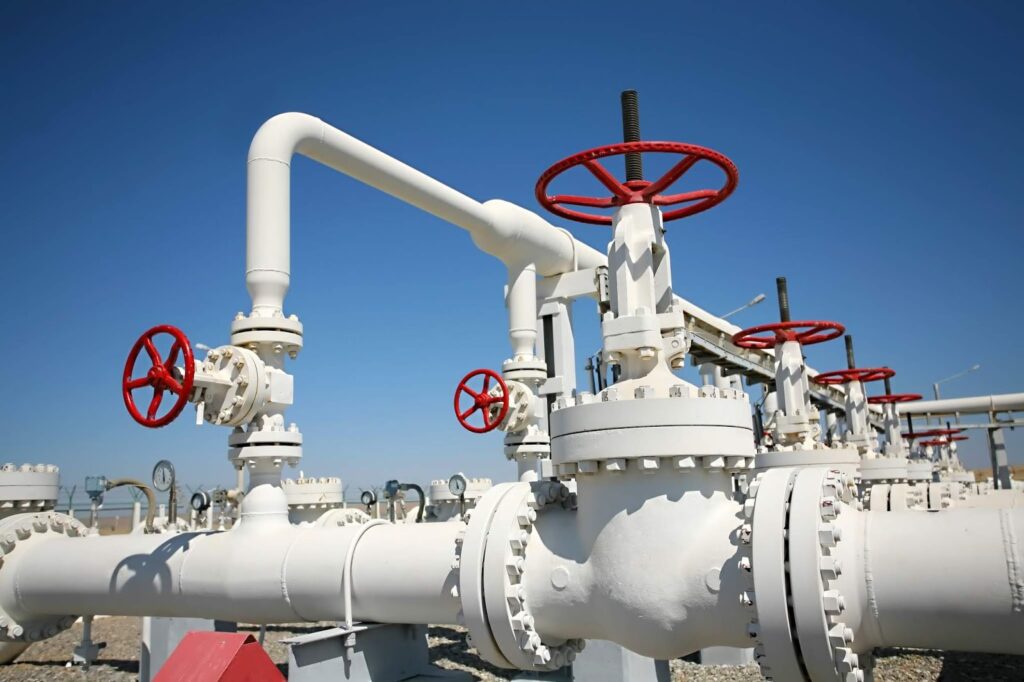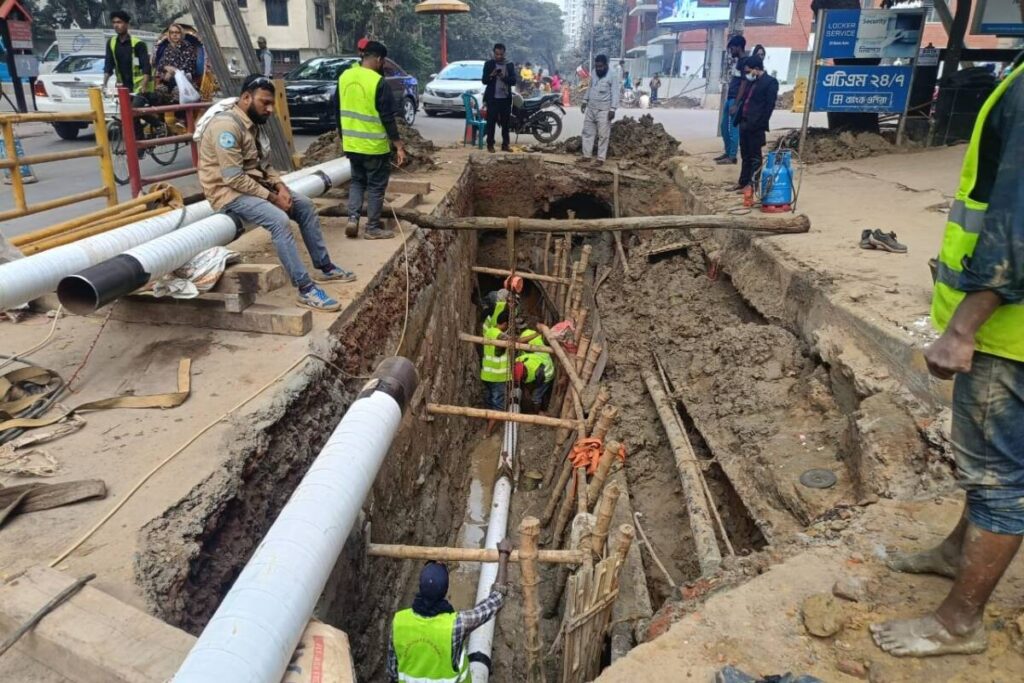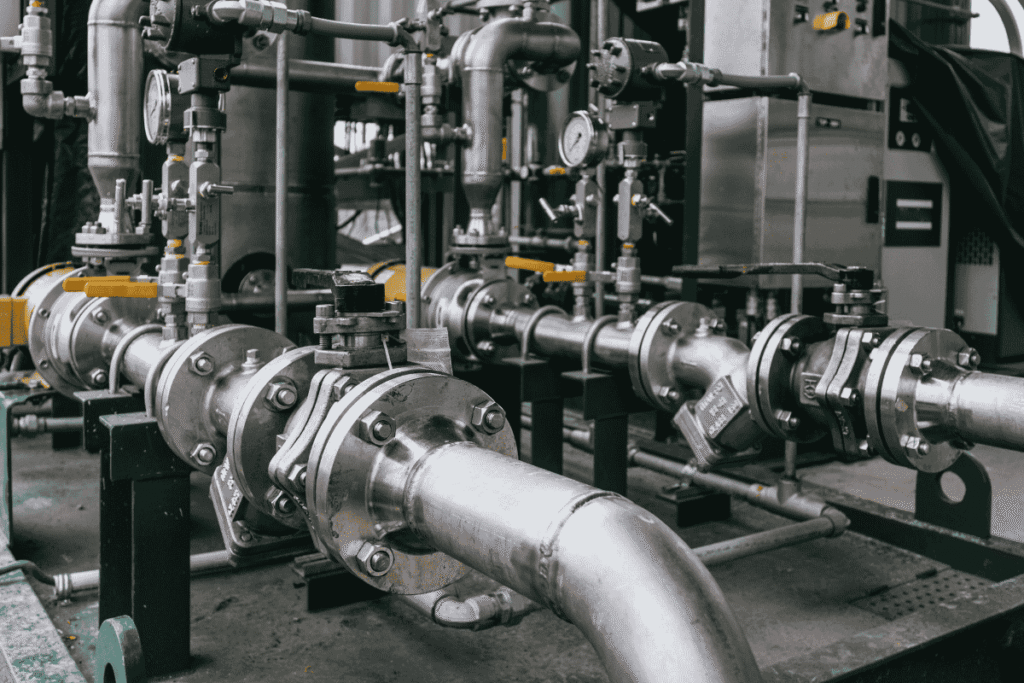Natural gas is one of the most widely used fuels worldwide, powering everything from household appliances to large-scale What kind of pipe is used for natural gas? This is a vital question for ensuring safety, reliability, and efficiency in transporting natural gas. Natural gas powers everything from household stoves to industrial power plants. But before it reaches homes or factories, it must travel through pipes designed specifically for its pressure, chemical makeup, and flow requirements. In this guide, we’ll explore the best pipe materials for natural gas, including their advantages, limitations, and ideal applications.
Why Knowing What Kind of Pipe Is Used for Natural Gas Matters
Choosing the correct pipe ensures safe delivery, minimizes maintenance costs, and complies with industry regulations. The material you select must be durable, corrosion-resistant, and pressure-tolerant.
1. Steel Pipes: A Common Choice for Natural Gas Pipelines
Steel is one of the most frequently used materials in natural gas pipelines. Its high tensile strength and pressure resistance make it ideal for demanding gas transmission projects.
Why Use Steel Pipes for Natural Gas?
- Exceptional Strength: Steel handles high-pressure systems effortlessly.
- Corrosion Protection: Coated steel resists rust from moisture and soil.
- Large-Scale Efficiency: Capable of transporting massive gas volumes.
Where Steel Pipes Work Best:
Steel pipes are best suited for transmission pipelines, industrial applications, and urban utility networks.
2. Polyethylene Pipes: A Flexible Answer to What Kind of Pipe Is Used for Natural Gas in Homes
Polyethylene (PE) pipes offer a lightweight, flexible, and budget-friendly solution for natural gas transport, especially in residential and low-pressure systems.
Benefits of Using PE Pipes for Natural Gas:
- Flexible Installation: Easily maneuverable in tight or uneven spaces.
- Corrosion-Free: No coating needed to fight rust or decay.
- Cost Savings: Lower material and labor costs.
Best Uses:
Common in residential gas lines, urban areas, and rural networks.
3. Copper Pipes for Natural Gas: Best for Small Systems
While not the first answer to “what kind of pipe is used for natural gas,” copper is still used in low-pressure, small-scale setups.
Why Use Copper Pipes?
- Natural Corrosion Resistance: Performs well in moist or chemical-prone areas.
- Heat Tolerance: Suitable for gas appliances exposed to heat.
- Lightweight: Easier to handle than steel.
Ideal Applications:
Used primarily in homes, apartments, and small commercial gas systems.
4. Cast Iron Pipes: Outdated But Still Found in Some Natural Gas Systems
Cast iron used to be the go-to material but is now rarely chosen due to its brittleness and weight.
Pros and Cons of Cast Iron for Natural Gas:
- Strong Against Physical Force
- Long Lifespan When Maintained
- ❌ Prone to Cracking and Corrosion
Where You’ll Find It:
Mostly in older city pipelines still in operation.
5. Fiberglass Pipes: A Newer Option for Specific Natural Gas Installations
Fiberglass-reinforced plastic (FRP) provides a lightweight, corrosion-resistant alternative in specialty natural gas systems.
Advantages of Fiberglass for Gas Transport:
- Resists Chemicals and Corrosion
- Lightweight for Easy Installation
- Durable Under Moderate Pressure
Use Cases:
Often used in corrosive environments and specialized or modular systems.
Choosing What Kind of Pipe to Use for Natural Gas: Key Factors
Several critical factors determine the best pipe for your natural gas system.
1. Pressure and Temperature
High-pressure pipelines often require steel, while PE fits low-pressure zones.
2. Environment
Corrosive environments favor polyethylene or fiberglass due to their natural resistance.
3. Budget
PE is cost-effective for homes and small businesses. Steel suits large infrastructure despite higher costs.
4. Installation
PE and fiberglass allow easier handling. Steel and cast iron may demand heavy equipment.
5. Regulatory Standards
Always verify that your chosen pipe meets local gas codes and safety standards.
Final Thoughts: What Kind of Pipe Is Used for Natural Gas?
The best pipe depends on your pressure needs, budget, installation environment, and regulatory requirements.
- Choose steel for strength and long-distance transport.
- Pick polyethylene for flexibility and affordability in homes.
- Consider copper, fiberglass, or cast iron for specialized needs.
Making the right choice ensures safety, efficiency, and cost savings in every gas pipeline project.




